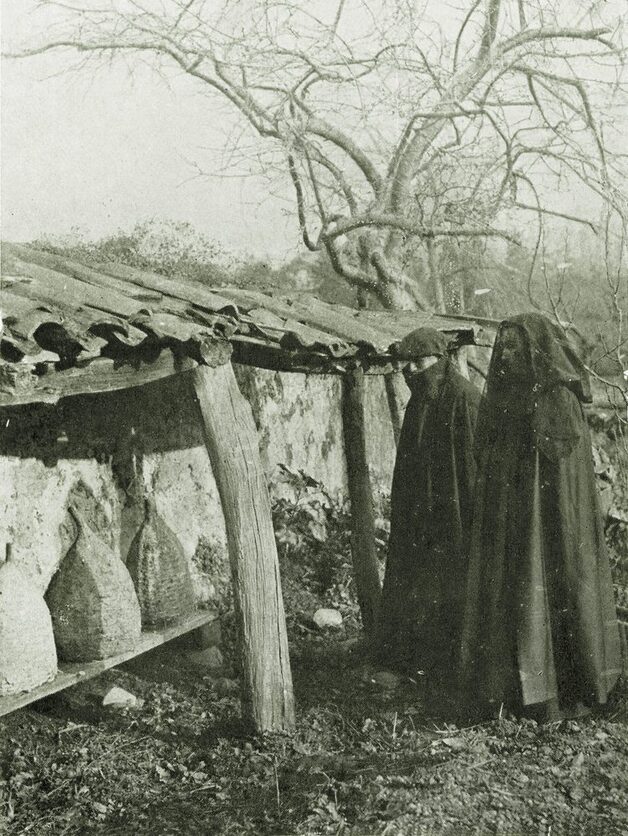Basque ethnography at a glance
The threat of the Asian hornet, and more notably, the environmental impact of pesticides have surely raised public consciousness of the dangers of bee mortality and the deadly consequences of their extinction to the planet.
In connection with bees and beekeeping, let us review a former custom, vanished sometime between the end of the 19th century and the beginning of the 20th, according to which house bees were to be told of the death of their keeper. We are of course talking about a time when most farmsteads kept honeybees.

Telling the bees. Photograph taken from Gure Herria [Our People]. Euskal Biblioteka. Labayru Fundazioa.
Domestic animals were part of the family unit, just as living and dead members of the household were part of the same community.
The telling of the bees is a traditional custom, widespread in all territories of the Basque Country and likewise observed in many other European countries, by which news on the death of the house owner ought to be shared with the bees, the motivation being doubled: first to announce the identity of their new master or mistress, and next to urge them to produce more wax for lighting the family grave in church.
There existed specific formulae to inform them of their master’s death, and if omitted or forgotten, the bees were believed to die shortly after. This we transcribe as recorded by Azkue: Nagusia hil da ‘Your master is dead’ or Etxekoandrea hil da ‘Your mistress is dead’. And among the numerous words dedicated to the bees for them to produce more wax, here follow these gathered by Serapio Mugica in Navarre:
Erletxuak, erletxuak,
egizute argizaria,
nagusia hil da-ta,
behar da elizan argia.
(Dear bees, / do make some wax, / for your master is dead, / and light is needed in church.)
The ritual formula for telling the bees was sometimes accompanied by gentle knocking upon the hive. The hive might also be draped with black cloth as a sign of mourning. In Ziortza (Bizkaia) the said act was known as lutoa jantzi ‘to put the bees into mourning’.
In some localities the announcement was made not only to the bees but also to other farm animals, particularly barn animals. Should they be lying, they were made to stand to receive the news. Records from Lower Navarre tell us of cowbells being removed following a death in the household, and of the heir patting the back of the cows while whispering these words: Orain ni nagusi ‘I am your new master’.
Segundo Oar-Arteta – Etniker Bizkaia – Etniker Euskalerria Groups
Translated by Jaione Bilbao – Ethnography Department – Labayru Fundazioa
Reference for further information: Funerary Rites, part of the Ethnographic Atlas of the Basque Country collection.

